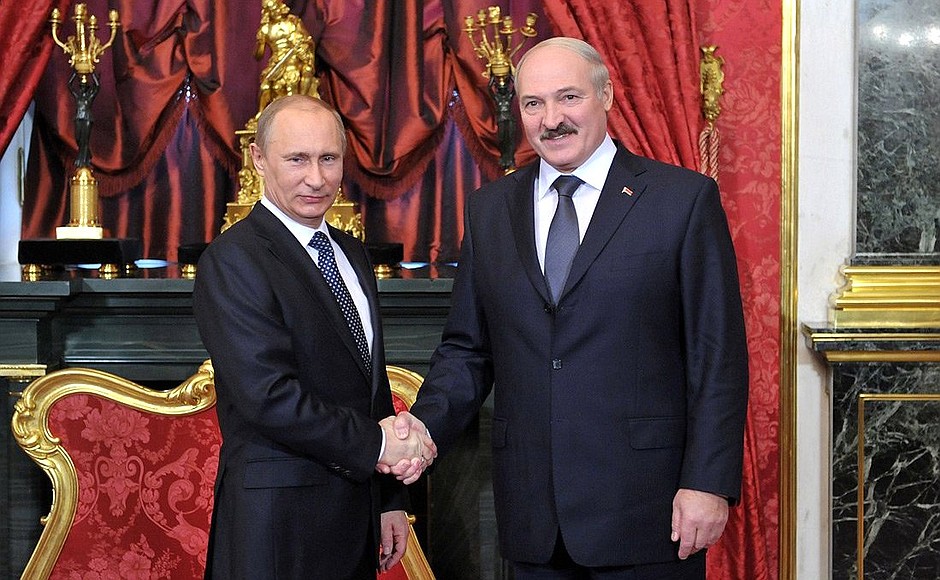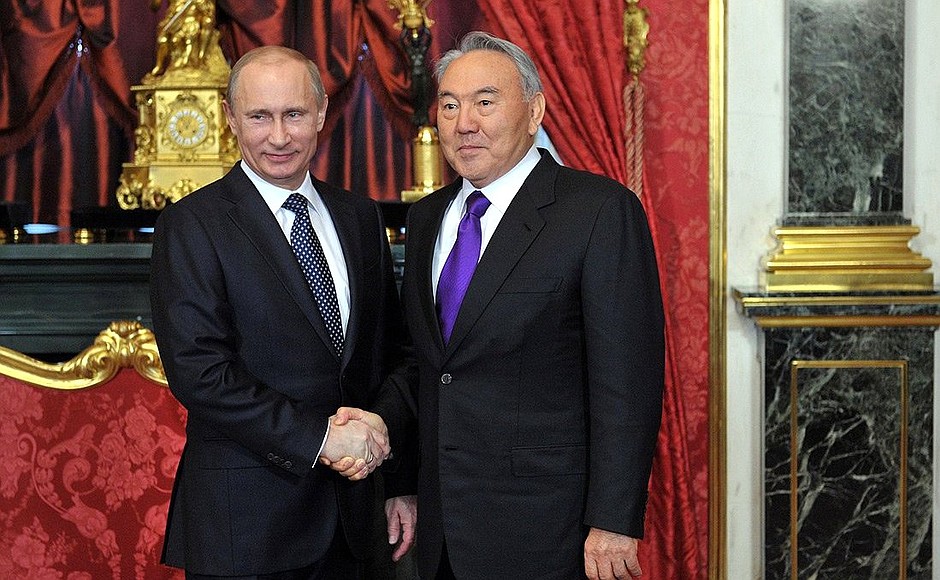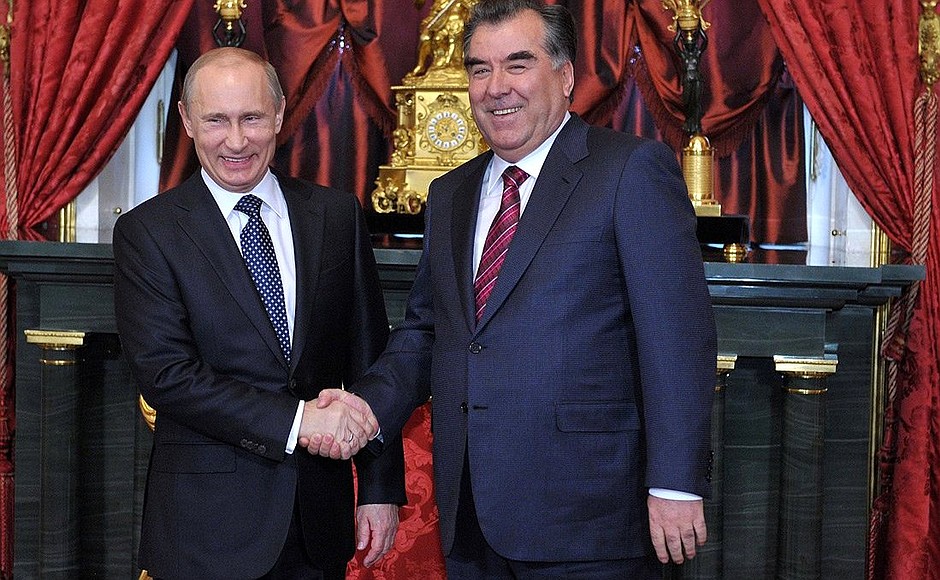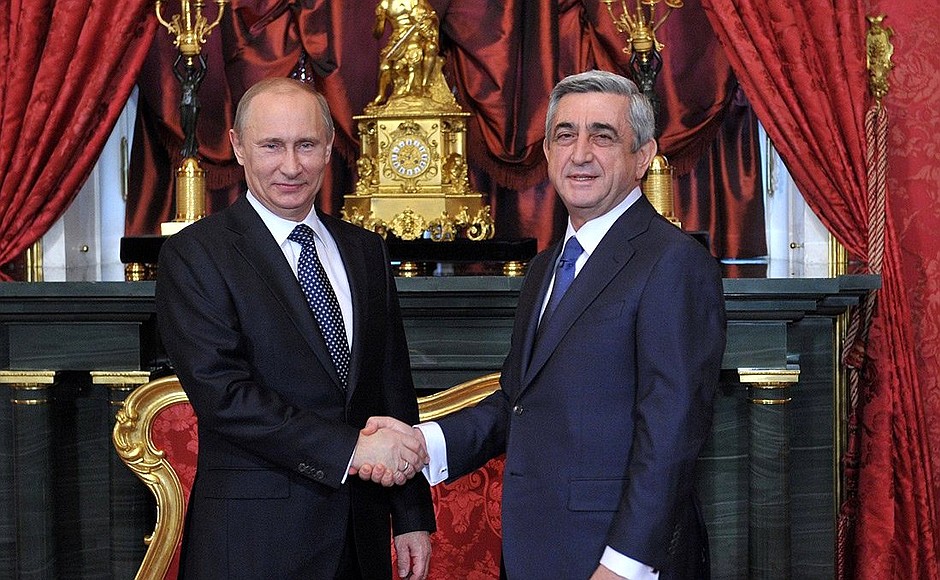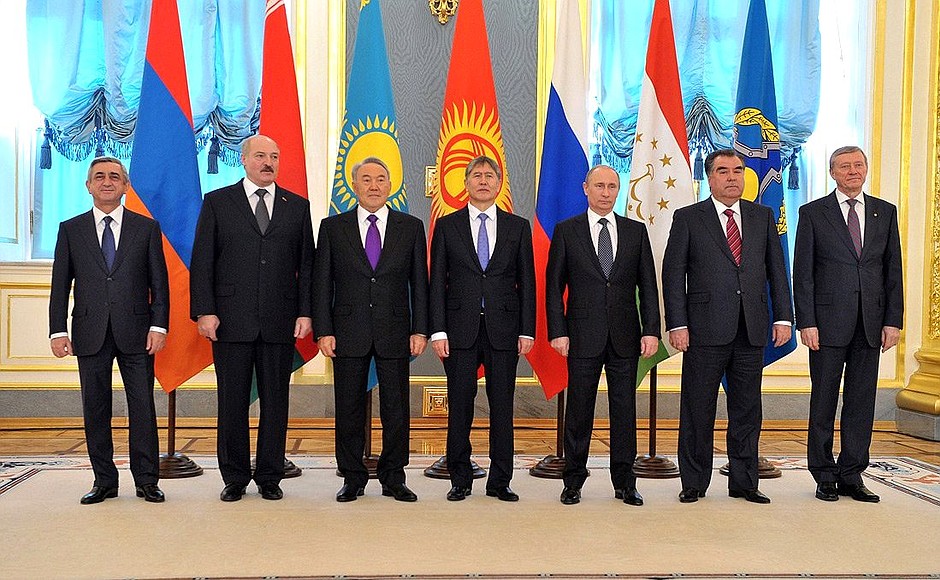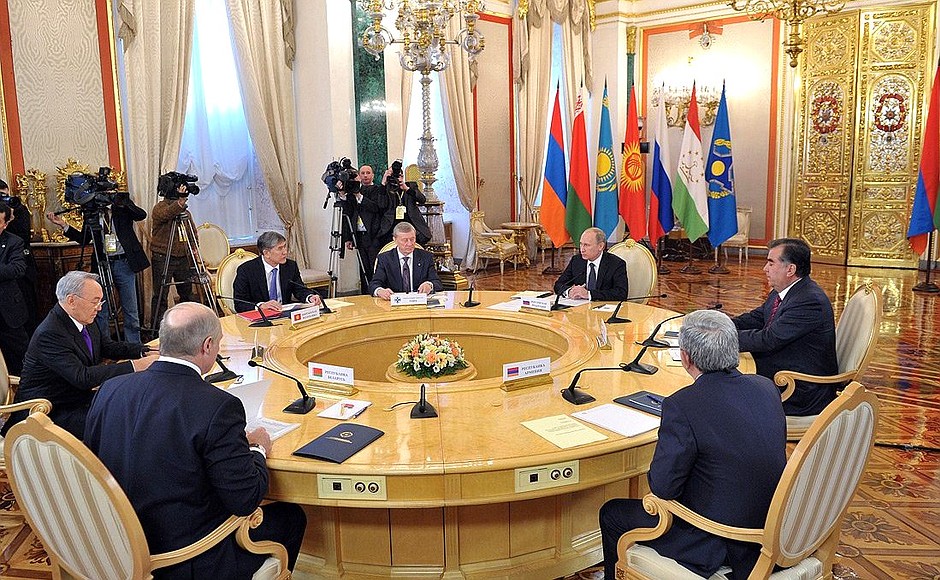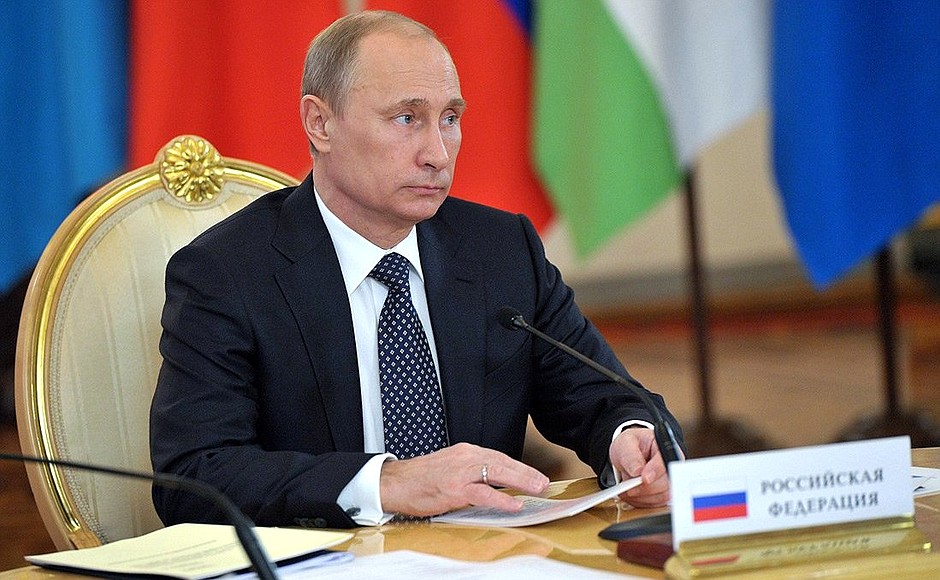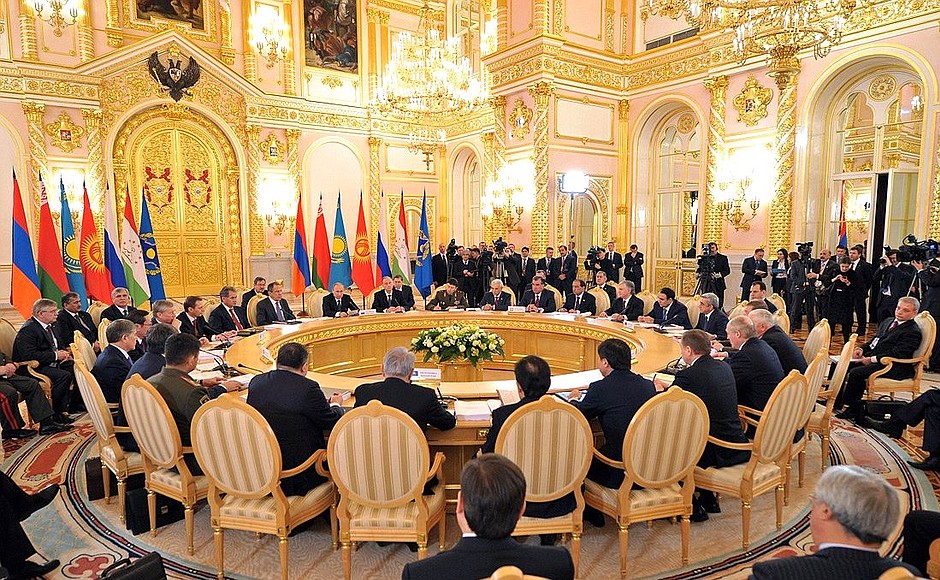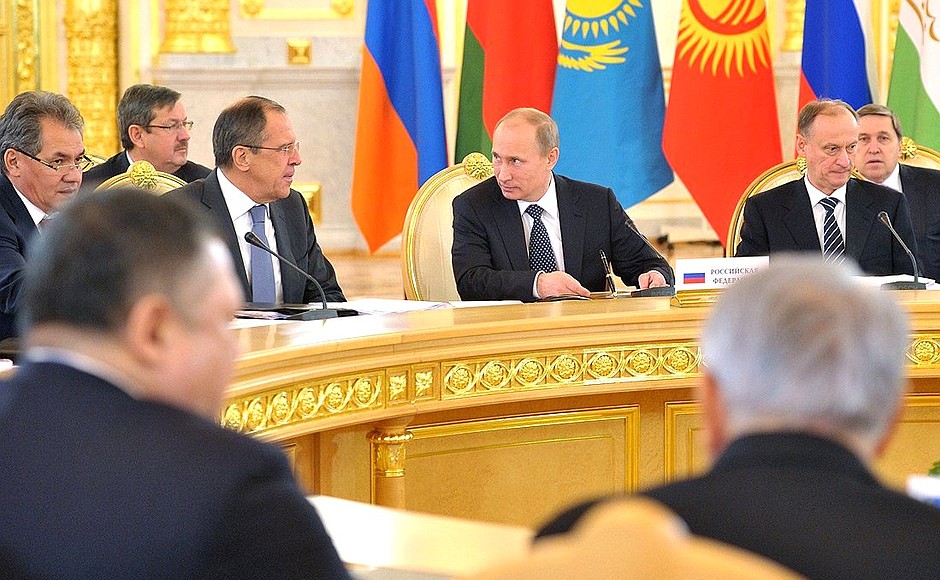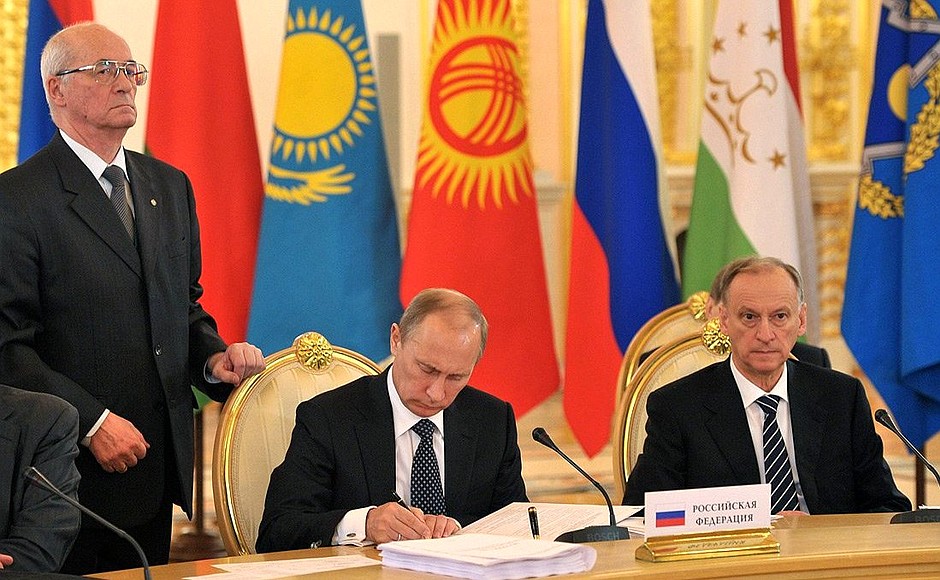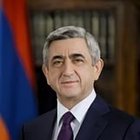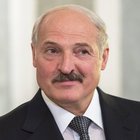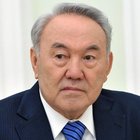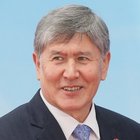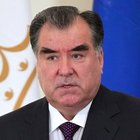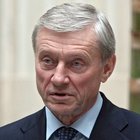The summit was attended by the heads of the Collective Security Treaty Organisation member states President of Armenia Serzh Sargsyan, President of Belarus Alexander Lukashenko, President of Kazakhstan Nursultan Nazarbayev, President of Kyrgyzstan Almazbek Atambayev, President of Russia Vladimir Putin, President of Tajikistan Emomali Rahmon, and CSTO Secretary-General Nikolai Bordyuzha.
Following the meeting, a statement of the heads of the CSTO member states was issued and a package of 18 summit resolutions was adopted including the basic aspects of military cooperation through 2020, on suspending Uzbekistan’s CSTO membership, and on the forecast for the situation in Afghanistan and measures to counter threats generated from it.
* * *
Speech at meeting of the heads of the Collective Security Treaty Organisation member-states in expanded format
President of Russia Vladimir Putin: Colleagues, friends,
Please allow me as President of Russia, the country that is hosting today’s meeting, to begin by saying a few words.
We just met in a restricted format and Kyrgyzstan will now be chairing the CSTO. We agreed that in the expanded format, each of us will say a few words and then we will move on to reviewing documents and the agreements that have been prepared for signing.
I would like to begin by noting that today’s meeting was the last in a year that marked several CSTO anniversaries. We have marked the 20th anniversary since signing the Treaty and 10 years since the formation of the Organisation which over this time has steadfastly affirmed its role as a key element in assuring security in Eurasia.
The CSTO demonstrates a genuinely collective approach to resolving objectives in countering current threats and challenges. It understands the close interdependence of the global processes, the inviolability of the regulations of international law and the inadmissibility of interference into the domestic affairs of sovereign states.
Ignoring these principles, attempting to impose one’s own approaches on other nations, can lead to very serious consequences. The dramatic developments in the Middle East and North Africa are the most evident proofs to that.
By organising our work in the spirit of equality and joint responsibility, we were able to move forward in all of the organisation’s main areas of operation: military cooperation, fighting international crime (first and foremost, drug trafficking), and crises management.
Today’s meeting was the last in a year that marked several CSTO anniversaries. We have marked the 20th anniversary since signing the Treaty and 10 years since the formation of the Organisation which over this time has steadfastly affirmed its role as a key element in assuring security in Eurasia.
We have begun preparations for conducting peace-building operations, and we are strengthening the CSTO’s military potential, including the Collective Rapid Reaction Force. The latest joint exercises of the CRRF, Vzaimodeystvie 2012, were held in Armenia in September.
We are improving the governance system. Thus, the position of chief of the CSTO united staff will now be held for a period of three years, and will not be held concurrently with any other job. Alexander Studenikin was nominated for this post, the nomination was presented to the national leaders today and the heads of state confirmed their decision to appoint him to this post. Now CSTO has accumulated vast experience and has fully established itself as an organisation which allows to make long-term plans.
Today, we should adopt an important document, the Basic Aspects of CSTO Member-States’ Military Cooperation through 2020.
I would like to note the increased level of our foreign policy cooperation, our foreign policy coordination. In the last year, more than 15 joint statements have been made on current international issues.
We are also strengthening the CSTO’s cooperation with other international and regional organisations, first and foremost ones like the Shanghai Cooperation Organisation and the CIS. We are planning to continue these efforts in the future, working to establish an effective partnership network in Eurasia to counter threats to security.
Special attention should be given to the state of affairs in Afghanistan, particularly with the upcoming reduction of the international military presence there in 2014. Today the President of Tajikistan remarked, and I absolutely agree with him, that we should not forget about the elections to be held this year in Afghanistan, most likely resulting in some additional tensions. We must take all this into account in our work.
In implementing our agreements reached at the May 2012 CSTO Collective Security Council meeting, a forecast on development prospects for the situation in Afghanistan was prepared. It is very important to use this document as a basis for suggesting an adequate set of practical actions aimed at minimising possible risks to all our countries.
Another significant point on our agenda is the decision to develop our collective response potential for emergency situations.
At today’s meeting, CSTO chairmanship is being transferred from the Republic of Kazakhstan to the Republic of Kyrgyzstan. I would like to thank Mr Nazarbayev for his serious work in developing our Organisation, and to wish Mr Atambayev, who is assuming CSTO chairmanship, success.
We support the Kyrgyzstani CSTO chairmanship’s priorities and expect that the efficacy of our joint work will further increase next year.
Thank you very much for your attention.
